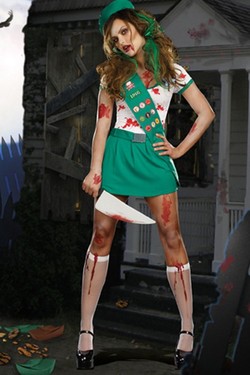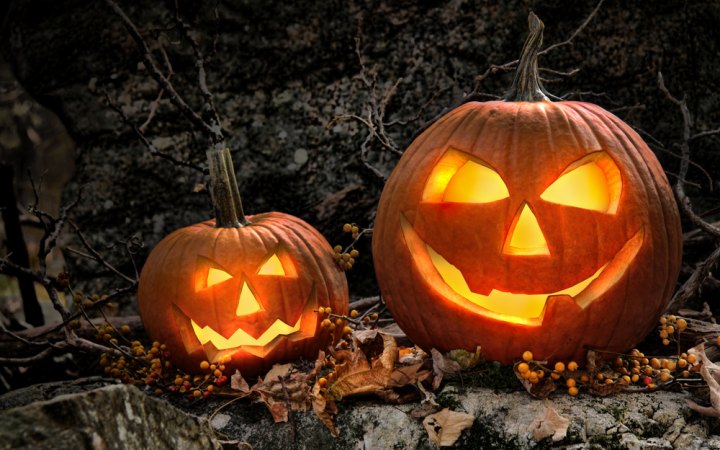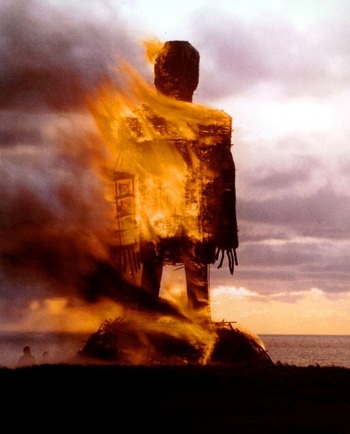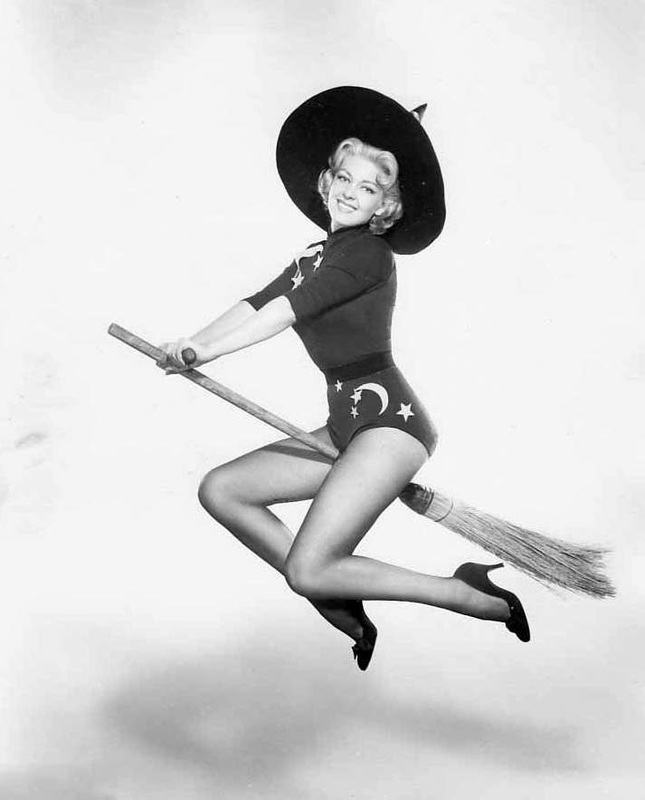|
All Hallows’ Evening, or as we know it today – Halloween, is a major commercial holiday. If it falls on a weekday, the banks are still open, the mail still gets delivered, but more people in America seem to be celebrating Halloween than ever before. It seems to be a day in which many people feel that debauchery, and a celebration of evil, terror and death can go mainstream – all in the guise of good fun in celebrating the holiday.
And of course, when the door opened after you knocked – because you were in your own neighborhood – everybody tried to guess who you were behind that mask. Each doorbell was a social event – you didn’t just open your bag when the door opened expecting to have candy thrown into it. There was far more to the transaction. But that was it. Halloween was essentially for kids.  But now it’s for adults. Adults who go take the gruesome aspects of Halloween much more seriously, and who seem to revel in being able to take their depiction of horror to new limits, and to celebrate ghoulishness – no doubt completely unaware of the traditions they are celebrating. At the risk of sounding like a prude, a not-too-healthy sign of the times in post-Christian America, I think. In her classic 1919 study of the history of Hallowe’en, Ruth Edna Kelley surmised that if one were to ask the ancient pagans who was the greatest of their gods, that their sun-god would probably be the most important. Depending on whether they were Greek or Egyptian, the name of that god would be Apollo, Horus or Osirus – but it’s all the same god. And it makes sense. I was quite struck by that when I read this, because of the significance Apollo plays in end-time eschatology and in Freemasonry. But that is a topic for another post. But as Ms. Kelley writes, “The sun has always marked out work-time and rest, divided the year into winter idleness, seed time, growth and harvest…..” So the sun-god therefore was critical in the minds of agrarian peoples to their harvest, and therefore their survival. “The pagan Hallowe’en at the end of summer was a time of grief for the decline of the sun’s glory, as well as a harvest festival……” Hallowe’en as a festival is generally acknowledged to have originated with the Druids, who were the priests of the Celts who populated Britain and Gaul centuries before the time of Jesus Christ. Only the Celts and the Teutonics (originators of modern-day Wiccan practices) celebrate an occasion similar to Halloween in America.
As the Israelites did, the Druids made human sacrifices to Baal, often burning them alive in wooden images, which were meant to urge the god to protect and bless the crops and herds. Samhain, or All Hallows’ Evening originally was a festival that marked the end of the harvest season, and the beginning of the ‘darker half’ of the year. It, like Beltain (e.g., May Day) was seen as a time during the year when the boundary between this world and the Otherworld could more easily be crossed. It was a time when traditionally the souls of the dead were thought to revisit their homes seeking hospitality. In fact, feasts were often held in the home to beckon the souls of dead kin with a place set for them. Jack-o’-lanterns were originally carried by persons during Hallowe’en to frighten evil spirits. Of course, this type of thing is forbidden by the Bible. Deuteronomy 18:10-12 strictly forbids any communication with the dead. Now if you don’t think this kind of thing is possible, then I guess it’s no big deal. I personally think it is possible, or the Bible wouldn’t have prohibited it. I think God is only trying to protect us with this commandment, as what we think may our dear, deceased Aunt Harriet may actually be something very sinister, posing as Aunt Harriet.
So to conclude this somewhat offbeat post, let me say this: Don’t pay too much attention to this holiday we call Halloween. I personally believe that there are spiritual things that we cannot see, but which can nonetheless affect us - for better and for worse. “For our struggle is not against flesh and blood, but against the rulers, against the authorities, against the powers of this dark world and against the spiritual forces of evil in the heavenly realms.” Ephesians 6:12
Messing around in things with which you have no knowledge can lead to unintended consequences that may not be very good. In fact, they could be very bad. To the uninformed or unprepared, dabbling or celebrating in a ‘holiday’ with this type of history can potentially open oneself up to unwanted and evil influences in your life. Why not just prepare for the triduum of Allhallowtide instead? Give the celebration at the end of October and beginning of November a whole different focus..... Celebrate Hallowe'en as the Eve to All Saints' Day, in much the same manner as we celebrate Christmas Eve today (or at least we should). Celebrate and reflect upon All Saints' Day (November 1) as a day to honor all of the saints and martyrs in your faith. Then follow with a similar reflection on All Souls' Day in remembrance of all of those dear to us who departed this life ahead of us - and with whom we hope to be reunited some day. When practicable to do so, a visit to a cemetery where love ones are interred, to simply reflect on the blessings they've been to our lives, and perhaps honor them with fresh flowers or other remembrance on their graves, is perhaps a very nice way to uplift our own hearts and spirits. A far better way to put yourself in the proper frame-of-mind to engage in a new American flânerie, to meet and engage with new friends, and to prepare for the truly joyous holiday season ahead, I think. © 2016 David Nogar All Rights Reserved
0 Comments
Leave a Reply. |
Author
David Nogar worked in railroad operations for almost 50 years until retiring from the transportation business in early 2023.
|



 RSS Feed
RSS Feed